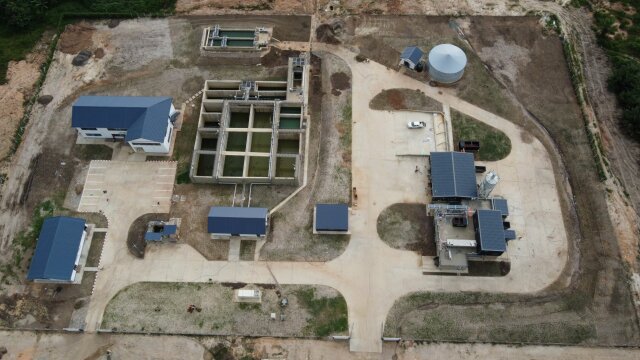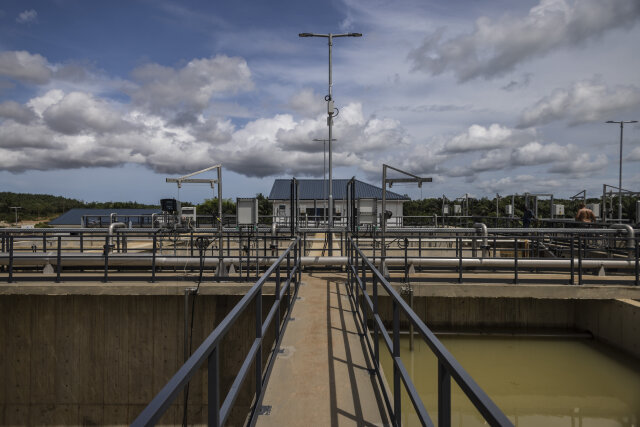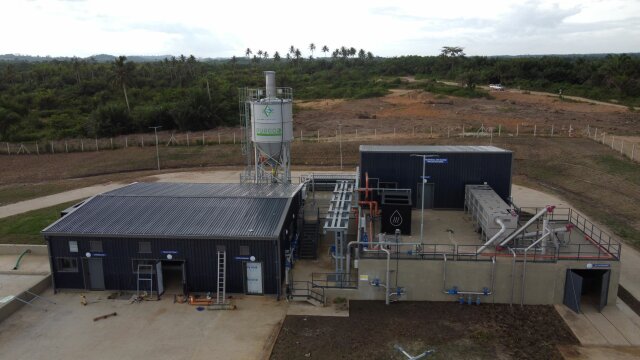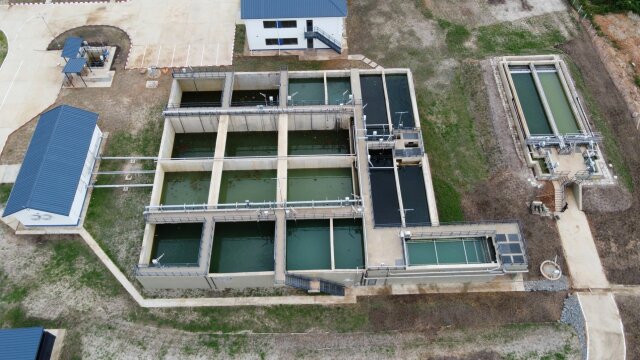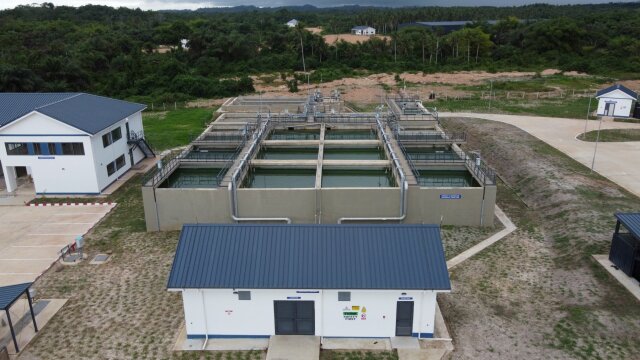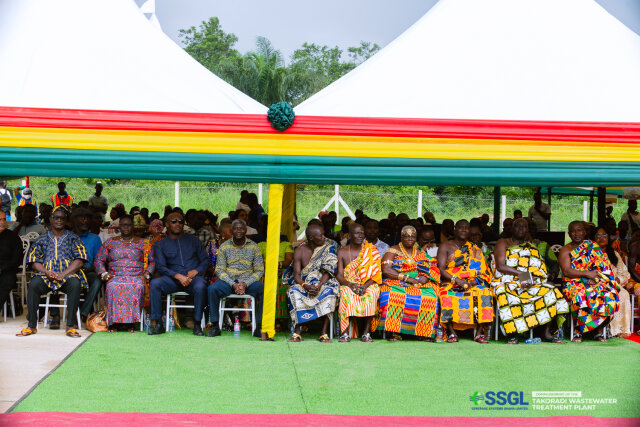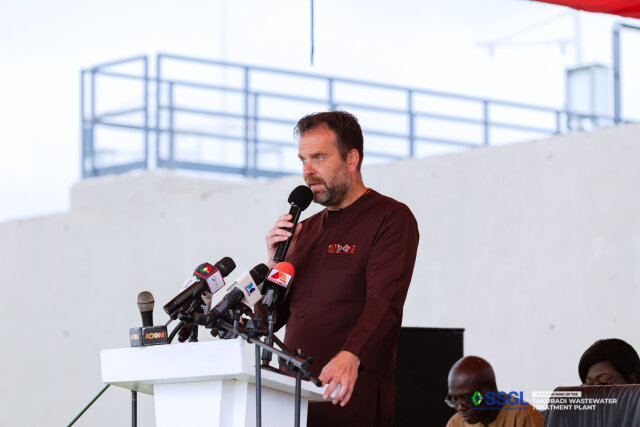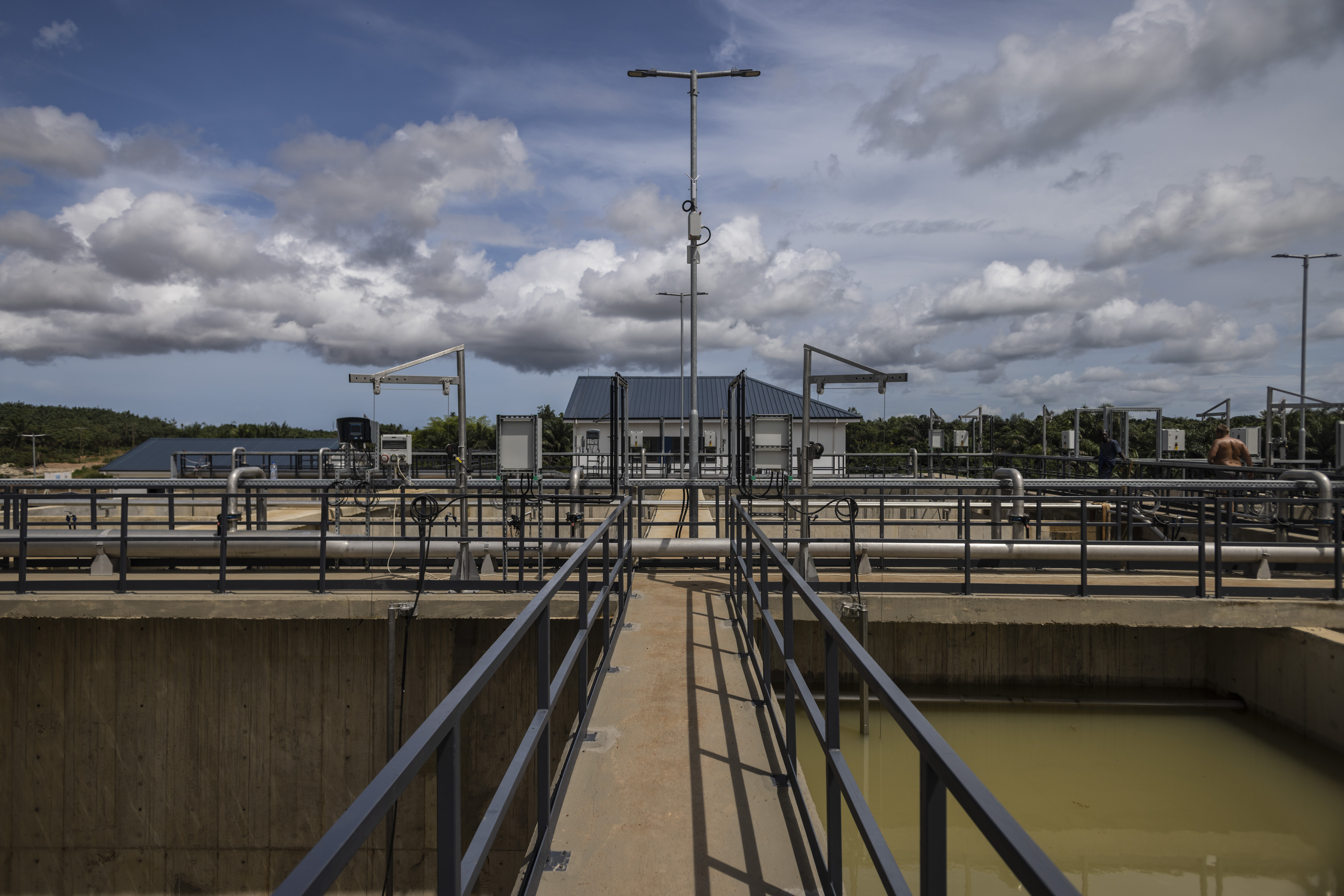
- Takoradi, Ghana, 2023
- Jospong Group of Companies
- 100% faecal sludge treatment
- Wastewater treatment
- wastewater treatment
- Septopure®
Takoradi is the second biggest city in Ghana after the capital city of Accra. From an environmental and public health point of view, it was essential to urgently develop new wastewater treatment facility in the city.
The Faecal Sludge Management (FSM) plant of Takoradi has 1,000 m3/d capacity, was designed and constructed by EU standards and according to WHO limits on the requirements for discharging treated wastewater into surface water bodies and water channels. The project represents significant milestones in Ghana's management of faecal sludge.
The FSM Plant was designed and built by the Hungarian Pureco-Unit Consortium for one of Ghana's most prominent private groups, the Jospong Group of Companies. Through an internationally assessed and disbursed buyer credit facility, which was granted by international standards, within the parameters and at the interest rates set by the OECD and the European Central Credit Institutions, the Jospong Group's investment was funded by the Hungarian Export Credit Agency, the EXIM Bank.
The unique solution that was applied for the treatment of the city's untreated wastewater, Septopure®, has been listed by the United Nations as a technology to accelerate the Sustainable Development Goals. This model of treating the faecal sludge on-site provides a quick solution where no sewerage network is available.
The project's positive effects on the environment and human health should be emphasised because they would lessen groundwater and surface water pollution and the prevalence of diseases caused by contaminated drinking water.
In the FSM Plant of Takoradi, the technology solution comprised not only the actual developments but also expert training programmes aimed at retaining the local workforce and getting them ready to use the built-and-designed systems. Several training programmes have been developed for Ghanaian specialists to guarantee the effective functioning of the built treatment plants and, consequently, their long-term sustainability.
We are proud to have completed projects in Africa with exemplary cooperation.
The Ghanaian-Hungarian collaboration does not end there; we all believe in a healthier environment for the people of Ghana!

